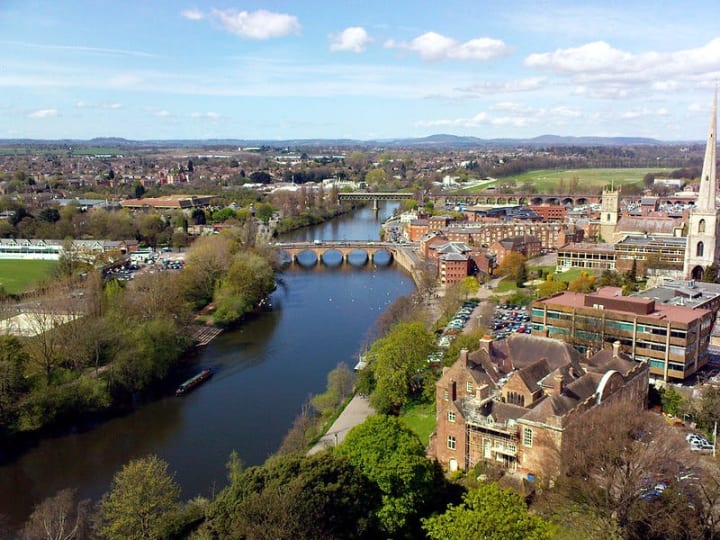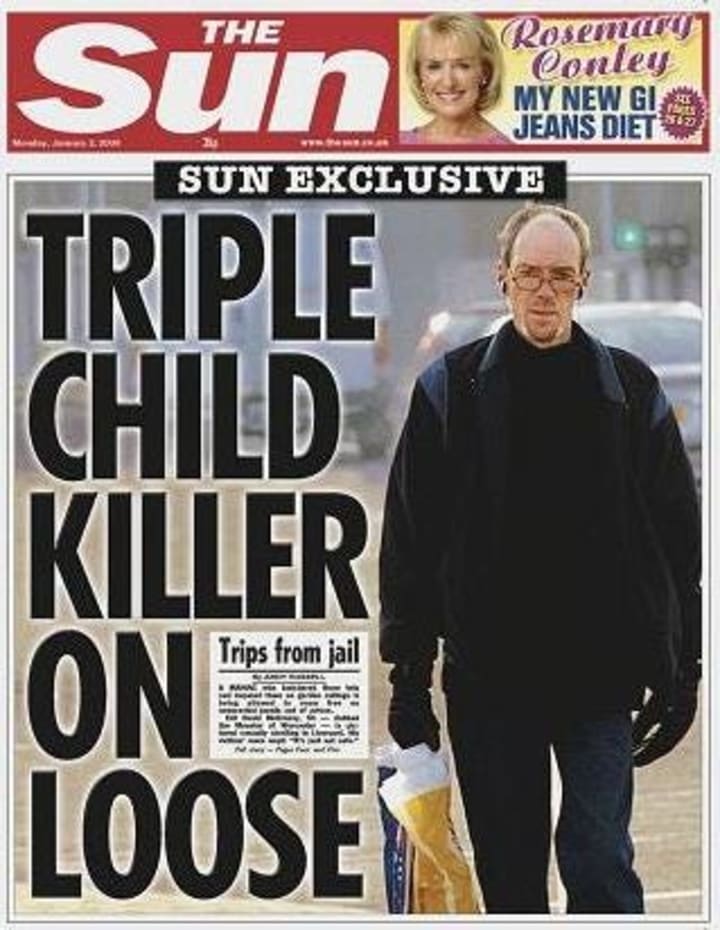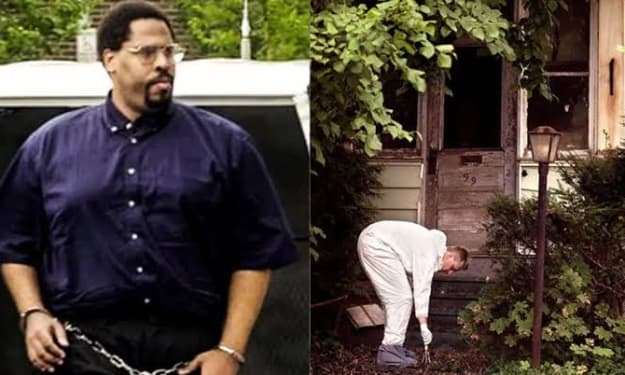David Anthony McGreavy: The Monster Of Worcester
The triple child murderer who is free to roam the streets

In the quiet streets of Worcester, England, a tragedy struck in the early 1970s that would leave an indelible scar on the community and become one of the most gruesome tales in the annals of British crime.
A troubled beginning
Born in 1951 in Southport, Lancashire, David McGreavy was the second of six children to Thomas and Bella McGreavy. Thomas was a sergeant in the British Army, which meant the family frequently moved between different Army posts, leading to a somewhat transient childhood for David McGreavy.
With aspirations of stability and service, McGreavy left school in 1967 to join the Royal Navy. However, his naval career was short-lived. By August 1971, he was dismissed following a court martial for starting a fire that razed a mess wardroom to the ground.
After being discharged from the Navy, McGreavy's life took a dark turn. A shattered engagement and a string of job terminations pushed him to the edge, resulting in heightened conflict with his family. In 1972, his parents, overwhelmed by his excessive drinking and unpredictable actions, made the difficult decision to kick him out of the family house.

Desperate for a place to stay, David McGreavy turned to a friend, Clive Kenneth Ralph, and his wife, Dorothy "Elsie" Urry, who lived in the Rainbow Hill district of Worcester on Gillam Street. The couple, who had two small children and were expecting a third, allowed McGreavy to rent a room in their home.
A change for the better?
To outsiders, David McGreavy appeared to settle into his new home with the Ralph family.
Sure, he still had trouble keeping a job and was considered a brazen young guy who enjoyed drinking, but he appeared to be changing for the better.
In the months he lived with the family, David became known for his friendly nature. He was beloved by the Ralph family and well-liked by the neighbours. According to Elsie, he would frequently spend hours playing with the children and caring for them as if they were his own.
As such, the couple regularly trusted David to babysit their three young children, Paul Ralph, Dawn, and baby Samantha.
However, beneath the surface of this seemingly ordinary life, David had a growing dependency on alcohol. And although his dramatic change while under the influence of alcohol was well known, those around him underestimated it. This oversight proved catastrophic.
The unspeakable crime
The start of the evening was just like any other.
It was Friday, 13 April 1973. Elise had prepared dinner, as usual, earlier in the evening before leaving her husband and their children at home while she started her barmaid shift at a local pub. Around 11:00 pm, 21-year-old David was left alone to babysit the three sleeping children while Clive retrieved Dorothy from the pub.
About an hour later, the couple arrived home to an empty house. The children had vanished, and David was nowhere to be found.
What had happened?
Sometime after Clive left, David McGreavy, who was intoxicated after having 5 to 7 pints at the pub earlier that day, lost control when faced with the persistent cries from nine-month-old Samantha.

Unable to handle her cries for her bottle, David used his bare hands to strangle the helpless infant, and Samantha died from a compound fracture to the skull.
After killing the nine-month-old baby, David then unleashed a terrifying onslaught on the other two children in his care. McGreavy strangled 4-year-old Paul with a wire and slashed 2-year-old Dawn's throat. But his brutality didn't end with their deaths. With a pickaxe, he further mutilated their bodies before impaling them on the spikes of a wrought iron fence in a neighbour's yard.
The parents, distraught with worry and unable to find their children, called the police. The cops swiftly arrived on the scene, and in the early hours of Saturday, 14 April, a police dog handler shone his flashlight in the pitch-black darkness, and the light landed on a pair of spiked iron railings between two back gardens. Illuminated were the small bodies of the Ralph children impaled on the fence.
The discovery of the mutilated children was the stuff of nightmares. It horrified neighbours and sent shockwaves through the community and the entire country. Even the police at the scene were reportedly profoundly disturbed, with one seasoned officer said to have become physically ill.
Police Constable Bob Rees, who was on the scene, would express that this was the worst incident of his career. "At first, I couldn't believe what I was seeing. During my police service, I saw dead bodies of all shapes and sizes, but never anything to compare with that."
The parents were brought to the police station. Initially, the authorities couldn't exclude them as potential suspects. But upon concluding that Elsie and Clive were not the culprits, the police faced the difficult duty of informing them that their children had been tragically and horrifically murdered.
Once they ruled out the parents, finding the murderer didn't take long. After all, Elsie and Clive had left their lodger, David McGreavy, to take care of their kids while Ralph was gone. Two hours later, he was discovered straying not far from Lansdowne Road. When arrested, he offered no resistance and simply asked, "What's all this about?"
In the police station, McGreavy initially denied knowing anything about what had happened to the kids. But he later admitted to the three killings that had taken place at the Gillam Street residence. When the cops asked McGreavy why he killed the three children, he gave a chillingly casual answer: "That is what I have been trying to figure out."
The aftermath
On 28 June 1973, David McGreavy appeared before the court and entered a guilty plea to the murder of the three children. The hearing lasted a mere 8 minutes, as he had no defence or motive, nor did he have a case for diminished responsibility. David McGreavy received multiple life sentences, with a 20-year minimum to be served before being considered for parole.
The aftermath of the crime left a wound in the local community of Worcester and sparked a media frenzy that would christen David McGreavy "The Monster of Worcester."

In December 2018, a parole board cleared McGreavy for release, stating he had regained self-control and was no longer a danger to society. On 11 June 2019, the man known as The Monster of Worcester walked free, leaving many questioning the justice system that allowed such a man his freedom.
Despite his release, David McGreavy is a stark reminder of the darkness that can lurk behind a familiar face.
About the Creator
Chelsea Rose
I never met a problem I couldn't make worst.






Comments (1)
I am appalled that he is out on the streets! He is a psychopath and will never change. Thank you for being an advocate for the victims by exposing his ugliness, too! Well done